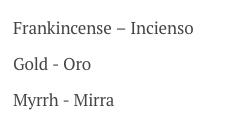The simple present tense makes you feel uncomfortable?
¿No te sientes cómodo con el tiempo present simple?
Veamos
Let´s see.......
You use the present tense to
El presente simple se utiliza para:
- speak about things which happen habitually
- hablar de cosas que suceden habitualmente: I never speak about it
- speak about generalities
- hablar de generalidades Buenos Aires is in Argentina
- speak about pre-planned activities which will occur in the near future
- hablar de actividades pre-planeadas en un futuro muy cercano The plane leaves at 7:00
- to give orders or instructions
- para dar órdenes o instrucciones Do the exercises alone, open the bottle first
It is very important to consider time expressions at the moment of listening or speaking. If you do so, you´ll use the simple present tense without difficulty
Es muy importante saber que hay expresiones dentro de una oración que nos ayudan al momento de definir en qué tiempo me están hablando o qué tiempo debo usar si lo que quiero decir requiere las siguientes expresiones
Es muy importante saber que hay expresiones dentro de una oración que nos ayudan al momento de definir en qué tiempo me están hablando o qué tiempo debo usar si lo que quiero decir requiere las siguientes expresiones
always (siempre
often (a menudo)
sometimes (algunas veces)
usually (generalmente, usualmente)
frequently (frecuentemente)
rarely (raramente)
occasionally (ocasionalmente)
never (nunca)
Every day, month, etc
in the afternoon, morning, etc
in summer, winter, etc
on Fridays, etc
on the weekend
- We form simple present sentences like the sentences in blue
Tengamos presente que formamos las oraciones afirmativas
S + V + resto de la oración
- If the subject of the sentence is a man, a woman, an animal or a thing you´ll need to add an "s" at the end of the verb
Si el sujeto de nuestra oración es un hombre, una mujer, un animal/cosa (he, she, it) debemos agregar "s" al final del verbo
The dog barks all day
My brother plays the violin
- If the subject of the sentence is I, You, We, They
mientras que si el sujeto es I, You, We, They, el verbo queda en infinitivo (sin agregar ni quitar nada)
I play the piano
We speak German
REMEMBER that you have to use the auxiliaries
DON´T/DOESN´T to make negative sentences
Tengamos presente que para formar oraciones negativas necesitamos recurrir al uso de auxiliares (palabras que ayudan a demostrar que estamos hablando en presente)
DON´T para negar el verbo de oraciones cuyo sujeto es I, we, you, they
I don´t like Charles
They don´t go to the picnic
DOESN´T para negar el verbo de oraciones cuyo sujeto es He, She, It
It doesn´t eat meat
She doesn´t go to the gym
Usaremos DO para preguntas que involucren I, We, You, They
Do you speak Japanese?
Do they live here?
What do you read?
Where does he work?
y usaremos DOES para preguntas que involucren He, She , It
Does she play golf?
Does it have black hair?
When does he visit his grandma?
prestar atención que al momento de usar auxiliares, los verbos que les siguen deben escribirse en infinitivo
Intenta practicarlo haciendo los ejercicios de la página
perfect english grammar
cuyos links te dejo más abajo:
http://www.perfect-english-grammar.com/present-simple-exercise-1.html
http://www.perfect-english-grammar.com/present-simple-exercise-3.html
http://www.perfect-english-grammar.com/present-simple-exercise-5.html
http://www.perfect-english-grammar.com/present-simple-exercise-6.html


























